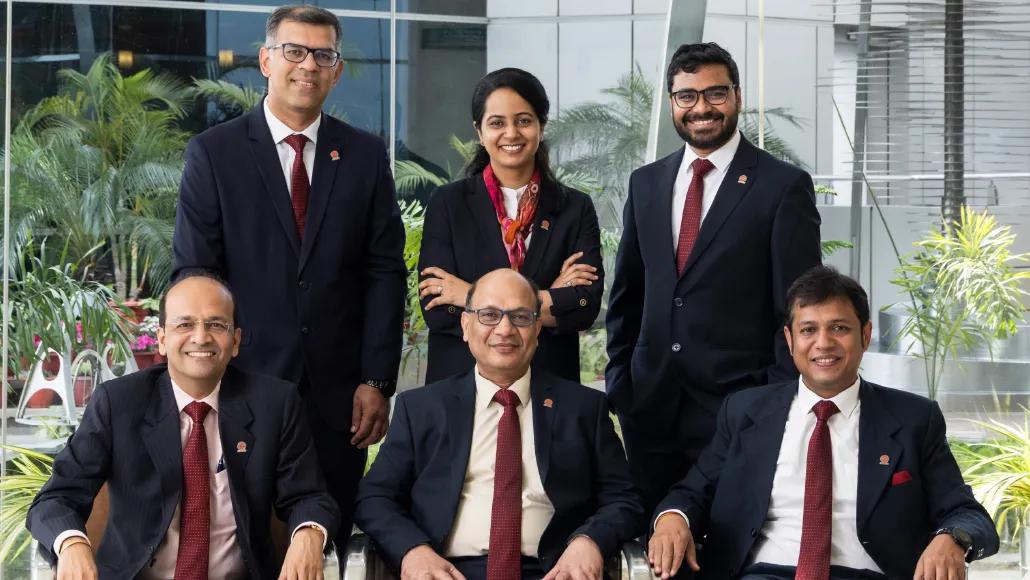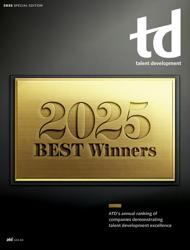TD Magazine Article
Member Benefit
Energy, Innovation, and Talent Development
Alignment between the business and talent development drives long-term success.
Mon Jun 16 2025
Indian Oil Corporation Limited: 2025 BEST Award Winner, #6
New Delhi, India
3-Time Winner

At Indian Oil Corporation, "talent development is at the heart of our business strategy," says HR director Rashmi Govil. "Our focus on talent stems from our belief that an organization's strength to successfully respond to challenges depends on the skills, agility, and alignment of the organization's workforce."
That naturally lends the state-owned company—and the largest commercial oil and gas enterprise in the world's most populous nation—to credit its longstanding success to the training of more than 30,000 employees. In the highly competitive and rapidly changing energy sector, the organization sees TD as a key tool to build the agile, future-ready workforce it needs to keep up with disruptive technological and demographic changes.
To advance its business strategy, the TD function has a talent vision and strategy framework that has four themes and five drivers. Tying directly to the organization's overarching mission "to become the energy of India and a globally admired company," the framework guides transformative initiatives for both the organization and its HR function. Two recent examples include implementing a shared services center for HR and deploying artificial intelligence for managing employee expectations.
TD efforts have contributed substantially to its market performance and profitability. In fact, the company credits its TD function as one of the factors for enabling the innovation that has led to substantial growth in its market capitalization and profit after tax during the past fiscal year. "By investing in continuous learning, Indian Oil ensures that its workforce remains future ready, contributing directly to business growth, customer satisfaction, and long-term profitability," states Udit Jain, the executive HR director for the company's corporate office.
Democratizing learning for reskilling and upskilling
To create equitable and inclusive access to learning—as well as to craft itself into an academy company where learning enables staff to build lasting careers—Indian Oil has established a comprehensive framework to upskill and reskill employees across all functions. The result, Project Swadhyaya, is a structured, technology-aided e-learning platform that employees can use to create personalized learning paths.
Hosted in the learning management system, Project Swadhyaya consists of more than 900 hours of learning content, and the company expects to add 500 additional hours during the next four years. The organization prevents so much content from overloading staff by aligning each course to its technical competency framework, which covers 570 professional competencies across 77 organizational functions. Each competency has four proficiency levels, from basic to expert, so employees can start with the fundamentals and work their way toward mastery.
The company drives usage on the platform through an innovative internal marketing program. The TD function releases a quarterly Swadhyaya Pulse newsletter that includes video testimonials from top learners. The platform helps learners see courses through by providing detailed tracking metrics. It also provides real-time data on user activity, from time spent on a course to quiz scores and completion statuses. Learners can complete assessments that provide them with feedback and updates on their progress through their learning paths, as well.
According to Jain, "the widespread adoption of Swadhyaya has had a direct and tangible impact on Indian Oil's business performance," yielding positive results across a range of strategic metrics. "Through Swadhyaya, Indian Oil has successfully created a culture of continuous learning that directly contributes to its operational efficiency, service excellence, and overall business sustainability."
Enabling a shift to renewable energy
The ongoing shift to renewable resources presents both a threat and an opportunity to established energy firms. Given the rapidly growing demand for energy in India, the stakes are high for Indian Oil. The organization aims to provide 31 gigawatts of renewable energy by 2030 through a multipronged business strategy, which makes building in-house expertise a top priority.
To help existing employees upskill into renewable energy leaders, the TD team introduced the Nav-Urja Nirman program, which translates to new energy creation. The program addresses the organization's future needs by targeting leaders at two levels.
For junior to midlevel executives, the initiative focuses on developing project execution and operational skills. Participants attend 20 days of residential training, split into three phases. The first phase focuses on strategic and policy-based inputs for the renewable energy space. The second phase covers the science and engineering behind solar power. The final phase covers wind power. Additionally, for mass upskilling, the TD function launched a virtual instructor-led program that offers custom learning around more specific development needs in renewable energy technologies, project management, and operations.
For senior executives, the program focuses on strategic planning and decision making. Participants attend a three-day, in-person training program, with support from top academic institutions.
Indian Oil reports that, as a result of the Nav-Urja Nirman program, the participants have contributed to the company rapidly increasing its renewable energy portfolio and placing itself on track to reach its 31-gigawatt goal for 2030.
Arts-inspired learning
As a large organization that sees itself as a talent academy, Indian Oil is dedicated to finding innovative ways to help employees transition into management roles. That's what recently drove it to establish a new partnership with India's National School of Drama, a theater training institution.
The result is an initiative called Sopaan, meaning ladder. Participants receive an evaluation that measures them across seven key personality traits for leadership at the start of the program. Then, over the course of six days, they use the power of theater to gain deeper understanding of their behavioral strengths and opportunities for growth.

